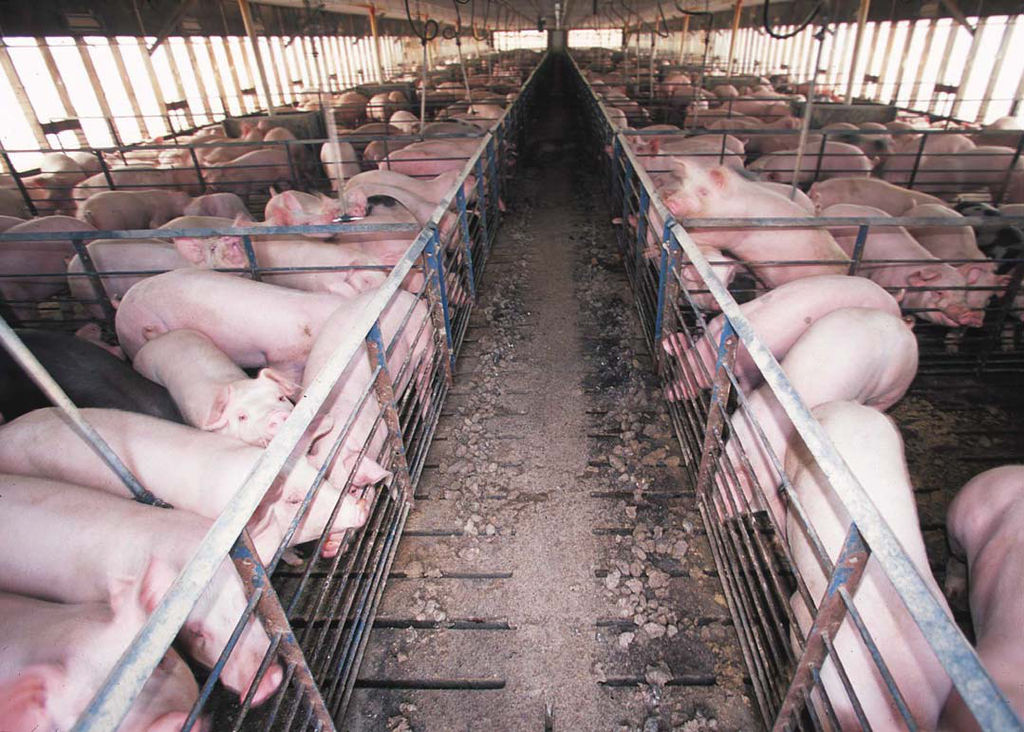
Have you ever driven past an industrial-sized livestock operation? Did you wonder about its environmental impact? These facilities are referred to as concentrated animal feeding operations, or CAFOs. CAFOs are facilities in which animals are confined for at least 45 days in a 12-month period, with no vegetation present during the normal growing season in the confined area. In Wisconsin, CAFOs generally house 1,000 or more animals.
CAFOs pose numerous threats to human health, including dangerous air emissions and noxious odors, and water pollution to surface, ground and drinking water. In Wisconsin, the Livestock Facility Siting Administrative Rule plays a large role in how CAFOs are regulated. This rule recently underwent review from a technical committee appointed by the Department of Agriculture, Trade and Consumer Protection (DATCP) and the proposed revisions are now open to public comment. Let’s dive into some of the details.
First, let’s start with the good news...
A handful of the proposed revisions to the Livestock Facility Siting Rule will bring some much needed changes to the regulation of CAFOs in Wisconsin. Let’s jump into the good stuff:
- Improved setbacks requirements, which determine how far a manure storage facility or barn needs to be from neighboring properties, will be key in protecting landowners whose properties surround CAFOs.
- Adjusting the current rule that only requires facilities 10 years or older to be inspected will be a welcome change, as storage facilities have been known to leak within just 30 days of installation.
- Local governments will be given the authority to impose more stringent restrictions for spreading manure without establishing public health and safety findings, which had previously made this difficult to accomplish.
There’s always room for improvement, right?
Although revisions to the rule could bring positive changes, there is still a lot left to do to protect Wisconsin from the hazards of CAFOs. Let’s dive into some of these needed changes:
- The current permitting fee of $1,000 needs to be adjusted to ensure local governments are not losing money in the review process. For example, Green County once paid $40,000 to review a single permit.
- Operators should be required to list owned, rented and contracted acres where they plan to spread manure to protect landowners from facilities spreading manure without their permission.
- The abbreviated review process that allows facilities expanding by less than 20-30% to forgo full reviews needs to be dismantled to prevent the slow, gradual expansion of facilities.
- Operators should be required to secure financial insurance as part of the permitting process to ensure governments aren’t covering the costs if CAFOs go bankrupt.
- Regulations regarding setbacks could still be stronger, as there are some loopholes in the proposed rule including more lenient setbacks if an operation complies with weaker, inexact odor control practices. Additionally, the setbacks need to be much larger and neighbors within two miles of the facilities should be notified. Finally, local governments need to be allowed to require additional setbacks if deemed necessary.
Why does this matter? We all want safe drinking water and clean air, and when given the opportunity to voice support or concerns around regulations that impact such issues, it is a great opportunity to speak up. The Dairy Business Alliance, along with eight other Big Ag groups, have already made unsuccessful attempts to prevent public hearings for the proposed changes to the rule. Our voices are extremely important on this topic.
What can we do? There are six scheduled public hearings across the state from August 15th – September 4th. Additionally, written comments will be accepted through September 13th. For hearing locations and contact information for comments, follow this link: https://datcp.wi.gov/Pages/News_Media/LSHearings.aspx. If you are planning on attending any of the hearings, RSVP to let us know!
Written by Sarah Cameron, Organizing Project Aide.